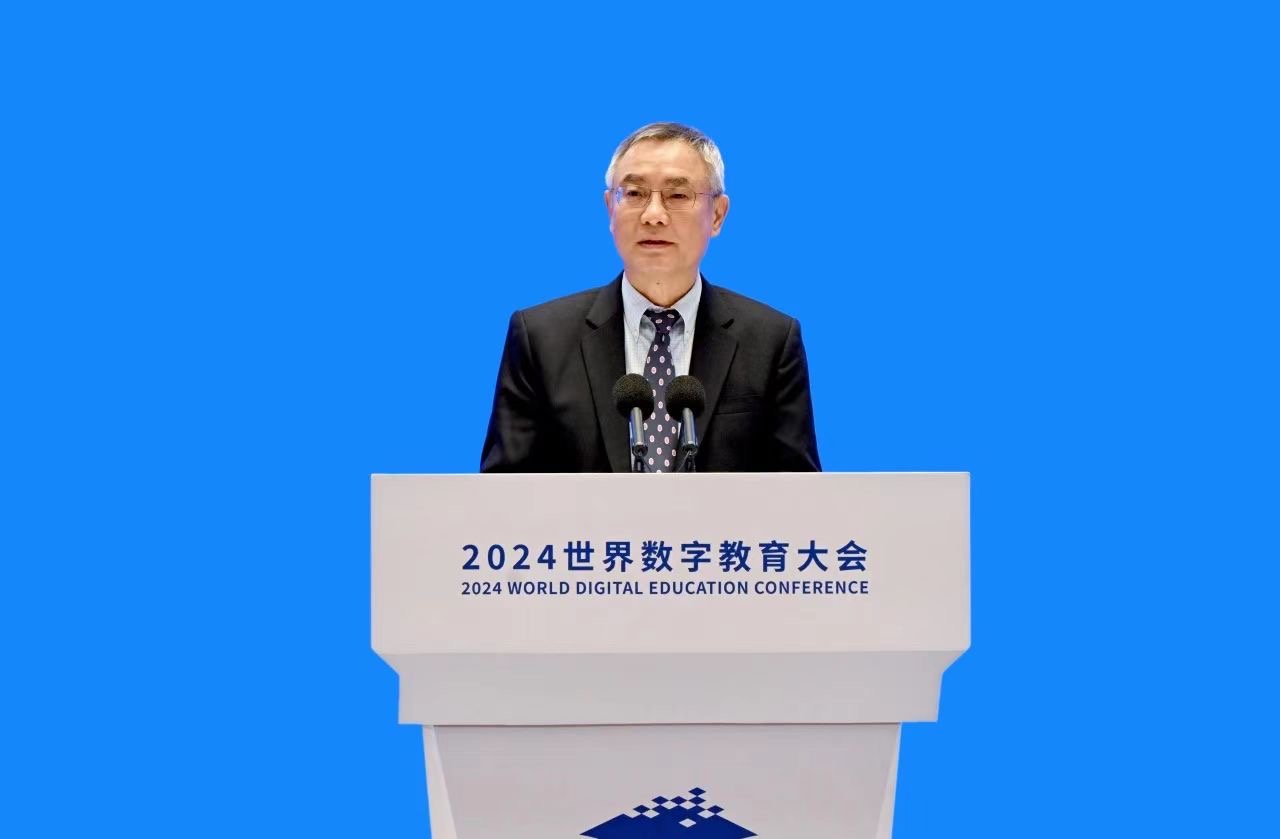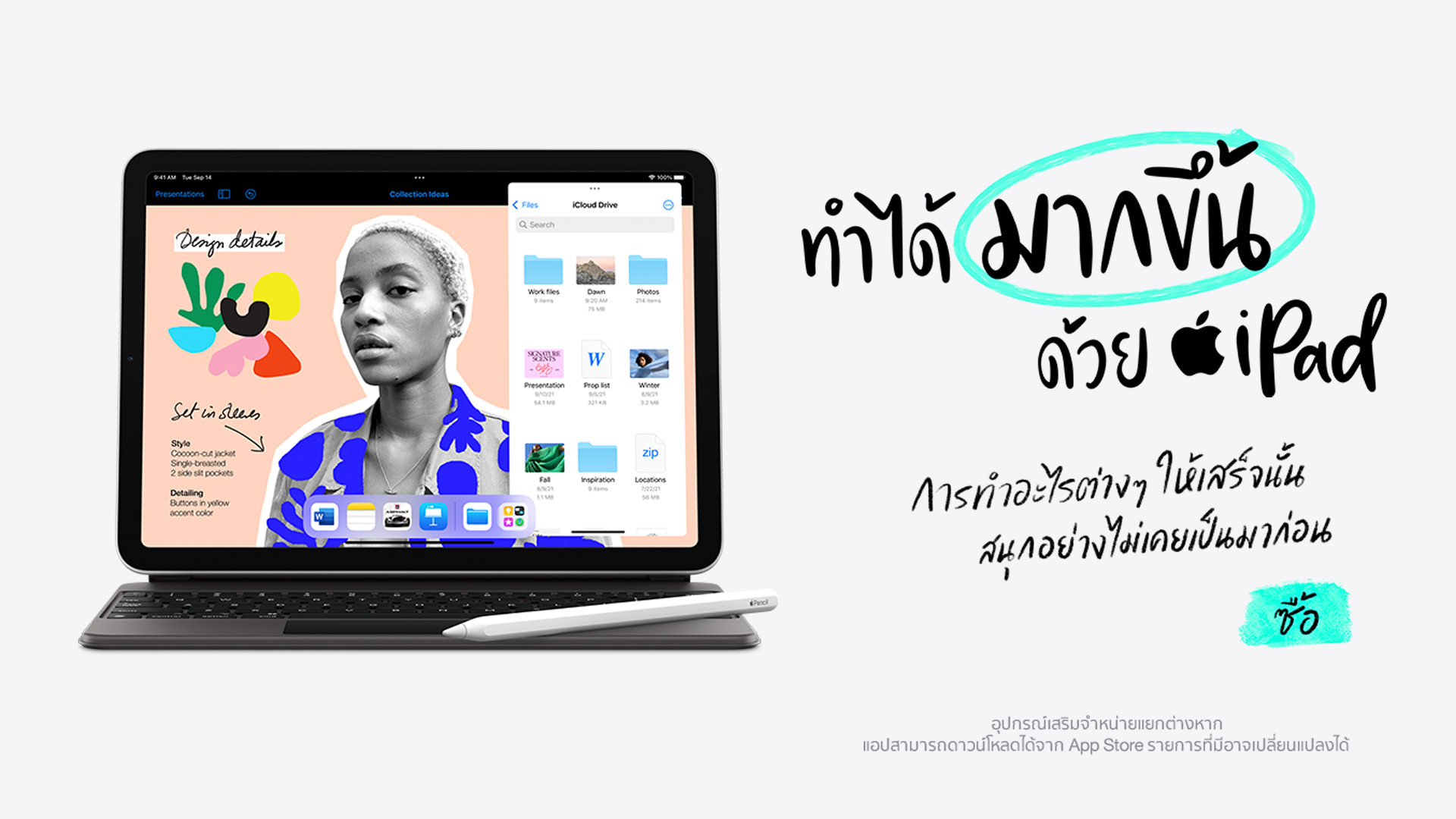เมื่อวันที่ 30 มกราคม การประชุมคู่ขนาน การประชุมการศึกษาดิจิทัลโลก ประจำปี 2024 ในหัวข้อ "การเปลี่ยนผ่านการศึกษาให้เป็นดิจิทัลและการสร้างสังคมแห่งการเรียนรู้" จัดขึ้นที่เซี่ยงไฮ้ มีตัวแทนจากหน่วยงานการศึกษา มหาวิทยาลัย และสถาบันวิจัยมากกว่า 240 สถาบันจาก 35 ประเทศและภูมิภาคเข้าร่วมการประชุม โดยมุ่งเน้นไปที่หัวข้อ "การศึกษาดิจิทัล: การประยุกต์ใช้ การแบ่งปัน นวัตกรรม" โดยมีการพูดคุยถึงประเด็นทางทฤษฎีและการปฏิบัติในการสร้างสังคมแห่งการเรียนรู้ในยุคดิจิทัลในเชิงลึกจากมุมต่างๆ
อู๋ หยาน รัฐมนตรีช่วยว่าการกระทรวงศึกษาธิการของจีน ชี้ให้เห็นว่าการสร้างสังคมแห่งการเรียนรู้ถือเป็นประเด็นสำคัญที่ประชาคมระหว่างประเทศกังวล ด้วยการปรับปรุงระดับความนิยมของการศึกษาระดับอุดมศึกษาโดยเฉพาะการพัฒนาอย่างรวดเร็วของเทคโนโลยีสารสนเทศ "การเรียนรู้สามารถทำได้ทุกที่ทุกเวลาและทุกคนสามารถเรียนรู้" ได้เปลี่ยนจากวิสัยทัศน์ไปสู่ความเป็นจริง ในช่วงไม่กี่ปีที่ผ่านมา กระทรวงศึกษาธิการของจีนได้ดำเนินการเชิงกลยุทธ์เพื่อเปลี่ยนการศึกษาให้เป็นดิจิทัล สร้างแพลตฟอร์มการศึกษาอัจฉริยะระดับชาติ และสร้างฐานดิจิทัลสำหรับสังคมแห่งการเรียนรู้ โดยยังคงส่งเสริมการสร้างเมืองแห่งการเรียนรู้ ชุมชนแห่งการเรียนรู้ และ องค์กรการเรียนรู้เพื่อส่งเสริมให้ทุกคนเรียนรู้และเพลิดเพลินกับการเรียนรู้ การศึกษาดิจิทัลที่ใหญ่ที่สุดในโลกรองรับประชากรการเรียนรู้ที่ใหญ่ที่สุดในโลก จีนยินดีที่จะเสริมสร้างความร่วมมือกับประเทศที่เกี่ยวข้องและองค์กรระหว่างประเทศเพื่อสร้างแพลตฟอร์มการเรียนรู้ดิจิทัลทุกสภาพอากาศ ซึ่งเป็นดิจิทัลเต็มรูปแบบ พื้นที่การเรียนรู้และชุมชนการศึกษาดิจิทัลอย่างเต็มรูปแบบ สร้างชุมชนการศึกษาดิจิทัล
Camelia Ntutum Leclerc รัฐมนตรีว่าการกระทรวงศึกษาธิการแห่งชาติและการฝึกอบรมพลเมืองของกาบอง และ Erica รัฐมนตรีว่าการกระทรวงศึกษาธิการและการย้ายถิ่นฐานของนิวซีแลนด์ ได้แนะนำโครงการริเริ่มเชิงนโยบายของประเทศของตนเพื่อส่งเสริมการศึกษาดิจิทัลและการเรียนรู้ตลอดชีวิต โมฮัมเหม็ด กรรมาธิการด้านการศึกษา วิทยาศาสตร์ เทคโนโลยี และนวัตกรรมของคณะกรรมาธิการสหภาพแอฟริกา ได้แนะนำแนวปฏิบัติของสหภาพแอฟริกาในการประสานงานประเทศในแอฟริกาเพื่อส่งเสริมการเรียนรู้ตลอดชีวิต Isabelle Kempf ผู้อำนวยการสถาบันยูเนสโกเพื่อการเรียนรู้ตลอดชีวิต ได้แนะนำแนวคิดของ UNESCO และโครงการริเริ่มที่เกี่ยวข้องในการสร้างสังคมการเรียนรู้ตลอดชีวิตและการตระหนักถึงการเรียนรู้แบบดิจิทัลที่ครอบคลุม Torun Gerswijk เลขาธิการสภาระหว่างประเทศเพื่อการศึกษาแบบเปิดและทางไกล เชื่อว่าการเปลี่ยนผ่านสู่ดิจิทัลเป็นกุญแจสำคัญในการสร้างสังคมการเรียนรู้ระดับโลก คุณภาพและการไม่แบ่งแยกมีความสำคัญอย่างยิ่ง สมาคมมหาวิทยาลัยเปิดแห่งเอเชียและสมาคมการศึกษาทางไกลแห่งแอฟริกาได้แบ่งปันแนวคิดและกลยุทธ์ใหม่ๆ ขององค์กรของตนเพื่อสังคมแห่งการเรียนรู้ มหาวิทยาลัยวิทยาศาสตร์และเทคโนโลยีมาเก๊า สถาบันการเรียนรู้ตลอดชีวิตแห่งเกาหลี มหาวิทยาลัยอนาโดลูในตุรกี, มหาวิทยาลัยมอสโกซิตี้นอร์มอล และมหาวิทยาลัยเปิดในสหราชอาณาจักร ได้แบ่งปันกรณีศึกษาเชิงปฏิบัติและประสบการณ์ที่ประสบความสำเร็จในสังคมการเรียนรู้ที่ขับเคลื่อนด้วยดิจิทัลในประเทศและโรงเรียนของตน
โดยทั่วไปแขกชาวจีนและชาวต่างชาติเชื่อว่าการพัฒนาอย่างรวดเร็วของการปฏิวัติเทคโนโลยีดิจิทัลและกระแสการเปลี่ยนแปลงทางดิจิทัลที่กำลังจะเกิดขึ้นจะนำมาซึ่งการเปลี่ยนแปลงทางการศึกษาอย่างลึกซึ้ง ประเทศและองค์กรระหว่างประเทศจำเป็นต้องแบ่งปันทรัพยากรคุณภาพสูงและโซลูชั่นที่มีประสิทธิภาพ ในเวลาเดียวกัน การกำกับดูแลระดับโลก ในด้านการศึกษาดิจิทัลจะต้องมีความเข้มแข็งเพื่อตอบสนองต่อความท้าทายอันล้ำลึกที่เกิดจากเทคโนโลยีเช่นปัญญาประดิษฐ์ต่อการศึกษาและแม้แต่มนุษยชาติ หน่วยงานภาครัฐ โรงเรียน และองค์กรต่างๆ ทั่วโลกควรเสริมสร้างความร่วมมือในการร่วมกันสร้างแพลตฟอร์มการเรียนรู้ดิจิทัลทุกสภาพอากาศเพื่อให้ผู้เรียนทั่วโลกได้รับการสนับสนุนการเรียนรู้อย่างต่อเนื่องตลอด 24 ชั่วโมงทุกวัน ร่วมกันสร้างพื้นที่การเรียนรู้ดิจิทัลเต็มรูปแบบ และพัฒนาอุปกรณ์พกพาที่ชาญฉลาดและพกพาได้มากขึ้น เทอร์มินัลการเรียนรู้ ช่วยให้ผู้เรียนเริ่มต้น "เส้นทางการเรียนรู้" ได้ในคลิกเดียวไม่ว่าพวกเขาจะอยู่ที่ไหน ร่วมกันสร้างชุมชนการศึกษาดิจิทัลที่ครอบคลุม ปรับปรุงความปลอดภัยของข้อมูล จริยธรรมดิจิทัล และกลไกการปกป้องความเป็นส่วนตัว และมอบความเป็นส่วนตัวแก่ผู้เรียนมากขึ้น บริการการเรียนรู้ที่เป็นมิตร จึงเป็นการเปิดศักราชใหม่ของสังคมแห่งการเรียนรู้
Digitalization Opens up a New Era for Learning Society Construction
Chinese and foreign participants discuss in the parallel session on " Education Digitalization and Learning Society Construction " at the 2024 World Digital Education Conference
On January 30, the parallel session on " Education Digitalization and Learning Society Construction " was held in Shanghai as part of the 2024 World Digital Education Conference. More than 240 representatives from educational departments, universities, and research institutions from 35 countries and regions participated in the conference. Focusing on the theme of "Digital Education: Application, Sharing, and Innovation," the conference delved into the theoretical and practical issues of building a learning society in the digital age from different perspectives.
Wu Yan, Deputy Minister of China's Ministry of Education, pointed out that the construction of a learning society is an important issue of international concern. With the improvement of the level of higher education popularization, especially the rapid development of information technology, the vision of "learning anytime, anywhere, and by everyone" has become a reality. In recent years, the Chinese Ministry of Education has implemented a strategy for digital education and established a national smart education platform, creating a digital foundation for a learning society. China has been continuously promoting the construction of learning cities, learning communities, and learning enterprises, encouraging everyone to have a passion for learning. With the world's largest scale of digital education, China is serving the world's largest learning population. China is willing to strengthen cooperation with relevant countries and international organizations to build an all-weather digital learning platform, a comprehensive digital learning space, and a fully covered digital education community, contributing to the construction of a digital education community.
Madam Camélia NTOUTOUME-LECLERCQ, Minister of National Education and Civic Training of Gabon, and Erica, Minister of Education and Immigration of New Zealand, introduced the policies and measures of their respective countries in promoting digital education and lifelong learning. Mohamed, Commissioner for Education, Science, and Innovation at the African Union Commission, presented the African Union's coordination of lifelong learning practices in African countries. Isabel, Director of UNESCO Institute for Lifelong Learning, introduced UNESCO's concepts and initiatives for building a lifelong learning society and achieving inclusive digital learning. Torunn Gautesen, Secretary-General of the International Council for Open and Distance Education, believed that digitization is key to building a global learning society, and quality and inclusiveness are of paramount importance. The Asian Association of Open Universities and the African Distance Education Association shared their new ideas and strategies for a learning society. Macau University of Science and Technology, Korea Lifelong Learning Institute, Anadolu University of Turkey, Moscow City Pedagogical University, and The Open University of the United Kingdom shared practical cases and successful experiences in driving a learning society through digitalization in their respective countries and schools.
Both Chinese and foreign participants generally believed that the rapid development of digital technology and the wave of digitalization will bring about profound changes to education. It requires countries and international organizations to share high-quality resources and effective solutions while strengthening global governance in the field of digital education to cope with the profound challenges brought by technologies such as artificial intelligence to education and even to humanity. Governments, schools, and businesses worldwide should strengthen cooperation and jointly build an all-weather digital learning platform to provide round-the-clock, uninterrupted learning support for learners worldwide. They should also create a comprehensive digital learning space, develop more intelligent and portable learning terminals, enabling learners to start their "learning journey" with just one click, regardless of their location. By building a fully covered digital education community and establishing sound mechanisms for data security, digital ethics, and privacy protection, learners can receive more personalized and user-friendly learning services, thus ushering in a new era of a learning society.

























No comments:
Post a Comment